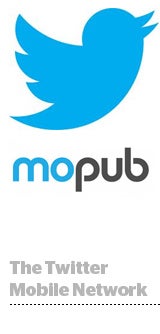 Four months after first introducing support for native advertising, Twitter’s mobile exchange MoPub is pitching the solution to all publishers.
Four months after first introducing support for native advertising, Twitter’s mobile exchange MoPub is pitching the solution to all publishers.
Consisting of an native ads SDK, a publisher-side ad server, and an RTB extension, the MoPub native product is a “a complete solution for direct sold and exchange traded native ads, delivering the same control and transparency to publishers that we are known for,” according to Twitter.
Here’s a little more detail from the blog post:
- The native ad SDK, which can be used to create a customized ad unit inside of your app
- The ad server, which allows you to traffic your own ad campaigns into your native inventory. Publishers have full budgeting support, a rich array of targeting options, integrated reporting and a full order and line items system for trafficking native ad campaigns for in-house campaigns and direct sold campaigns alike
- Our native ad extension to OpenRTB, which allows demand partners to bid on your native ads no matter how they are rendered in your app
Native ads are integrated with the core MoPub platform, so all the usual targeting factors can apply, including targeting on device type, location, carrier, and keyword. The availability of targeting based on keywords offers an intriguing potential future integration opportunity with MoPub’s corporate parent, as Twitter has rich insights around trending topics and hashtags. However nothing in today’s blog post signals that data from the Twitter service will be integrated as a targeting feature.
Publishers using the SDK for RTB sales can leverage MoPub’s usual price floor and block list features to prevent certain ads and advertisers from appearing.
The development is the latest step in a mobile arms race of sorts between Twitter and Facebook, which is expected to introduce a scaled mobile ad network to extend audience buys to other publishers and apps. And it comes one week after Twitter formalized its offering in the lucrative mobile app install space.
Twitter said, “We’ve learned that not only are native ads a significant improvement for publisher monetization in general, but that users engage with these ad formats at a higher rate than the desktop-era banners and interstitials that are so prevalent today in mobile. Because of this, monetization through native ads can deliver a considerably better experience for users and also a better ROI for marketers.”
For agencies, the prospect of native advertising traded in an exchange environment is not new – OpenX, TripleLift, and Bidtellect are among the companies making moves — but an offering from a major social platform is exciting in light of the data such companies can bring to bear.
“Native in an in-stream placement is not new. The data [angle] is more interesting because it’s Twitter,” said JiYoung Kim, SVP for strategy and new solutions with Ansible Mobile when the MoPub native offering was first introduced. “MoPub lets them offer marketers a chance to respond in the moment. The reason we participate in Twitter is to be part of that moment.”
Judith Aquino contributed.













